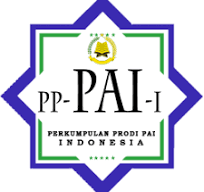INTERPRETASI ILMU DAN IMAN PERSPEKTIF PENDIDIKAN ISLAM IBNU SINA
DOI:
https://doi.org/10.54069/attaqwa.v20i1.405Keywords:
Ibn Sina, Science and Faith, Islamic Education.Abstract
The purpose of this study is to describe the understanding of science and faith from Ibn Sina's perspective in the context of Islamic education. This research delves deeper into Ibn Sina's concepts of Islamic science, faith, and education. Ibn Sina believed that knowledge and faith are interrelated and complementary by using the Intellect which in its scheme can enable progress through various levels of understanding and can ultimately lead to God or the ultimate truth. This study uses a qualitative method with the data collection technique being library research. The results of the study show that in understanding science and faith in the context of Islamic education, Ibn Sina encourages holistic education where one must understand science and faith thoroughly. The application of holistic education includes the adjustment of the educational curriculum based on the age level of the students, the development of individuals with three main elements (al-Jism 'physical', al-Nafs 'mental', and al-'Aql 'intellectual'), the formation of students' character (ethics and morals), and critical thinking to reflect on their knowledge and beliefs about God in a way that combines knowledge and faith so that it can be applied in the context of modern education.
Downloads
References
A’yuni, Siti Qurrotul A’yuni. “Analisis Pemikiran Pendidikan Menurut Ibnu Sina Dan Kontribusinya Bagi Pendidikan Islam Di Era Modern.” Journal of Islamic Education Research 1, no. 3 (2020): 227. https://doi.org/10.35719/jier.v1i3.39.
Adlini, Miza Nina, Anisya Hanifa Dinda, Sarah Yulinda, Octavia Chotimah, and Sauda Julia Merliyana. “Metode Penelitian Kualitatif Studi Pustaka.” Edumaspul: Jurnal Pendidikan 6, no. 1 (2022): 976. https://doi.org/10.33487/edumaspul.v6i1.3394.
Al-Faruqi, Achmad Reza Hutama. “Konsep Ilmu Dalam Islam.” Kalimah 13, no. 2 (2015): 225. https://doi.org/10.21111/klm.v13i2.286.
Amalia, Rika. “Pemikiran Ibnu Sina (Religius-Rasional) Tentang Pendidikan Dan Relevansinya Dengan Pendidikan Islam Kontemporer.” Paramurobi: Jurnal Pendidikan Agama Islam 6, no. 1 (2023): 70. http://www.nber.org/papers/w16019.
Amiruddin, Amiruddin, Nurdin Nurdin, and Moh. Ali. “Islamic Education Teacher Communication Strategy in Increasing Students ’Learning Interest.” International Journal of Contemporary Islamic Education 3, no. 1 (2021): 53–54. https://doi.org/10.24239/ijcied.vol3.iss1.31.
Ansari, Ansari, and Ahmad Qomarudin. “Konsep Pendidikan Islam Menurut Ibnu Sina Dan Ibnu Qayyim Al Jauziyyah.” Islamika: Jurnal Keislaman Dan Ilmu Pendidikan 3, no. 2 (2021): 139–40. https://doi.org/10.36088/islamika.v3i2.1222.
Arroisi, Jarman, and Rahmat Ardi Nur Rifa Dai. “Psikologi Islam Ibnu Sina (Studi Analisis Kritis Tentang Konsep Jiwa Perspektif Ibnu Sina).” Prosiding Konferensi Integrasi Interkoneksi Islam Dan Sains 2 (2020): 204. https://www.researchgate.net/publication/357335854.
Drajat, Amroeni. Filsafat Islam: Buat Yang Pengen Tahu. Jakarta: Erlangga, 2008.
Handayani, Astuti Budi, and Suyadi Suyadi. “The Relevance of Ibn Sina’s Leveled Intellect Concept in Islamic Education in the Millennial Era.” Ta’dibuna: Islamic Education Journal 8, no. 2 (2019): 238. https://doi.org/10.32832/tadibuna.v8i2.2034.
Khasanah, Nur, Achmad Irwan Hamzani, and Havis Aravik. “Klasifikasi Ilmu Menurut Ibn Sina.” SALAM: Jurnal Sosial Dan Budaya Syar-I 7, no. 11 (2020): 1000. https://doi.org/10.15408/sjsbs.v7i11.17739.
Khodadadi, Hossein. “Ibn Sina, Divine Simplicity and the Problem of Ineffability.” International Journal of Indonesian Philosophy & Theology 4, no. 1 (2023): 31–32. https://doi.org/10.47043/ijipth.v4i1.44.
Kusuma, Amir Reza. “Konsep Kebahagiaan Menurut Ibnu Sina The.” Jurnal Penelitian Medan Agama 14, no. 1 (2023): 37. http://jurnal.uinsu.ac.id/index.php/medag/.
Mustafa, Zaiton, and Mohd Roslan Mohd Nor. “Pembangunan Individu Menurut Ibnu Sina: Analisis Terhadap Karya-Karya Terpilih.” Journal of Fatwa Management and Research, 2018, 542. https://doi.org/10.33102/jfatwa.vol13no1.190.
Naila Farah, Intan Fitriya. “Konsep Iman, Islam Dan Taqwa.” Rausyan Fikr 14, no. 2 (2018): 207. https://doi.org/10.24239/rsy.v14i2.349.
Nur Zaini. “Kurikulum Pendidikan Menurut Ibnu Sina Dan Relevansinya Terhadap Pengembangan Kurikulum Pendidikan.” Jurnal Cendekia 11, no. 2 (2019): 117. https://doi.org/10.37850/cendekia.v11i2.93.
Putu Muchtar, Nicky Estu, Imam Suprayogo, and T Supriyatno. “The Implications of Religious Tolerance and Nationalism Values at Islamic Boarding School.” AL-ISHLAH: Jurnal Pendidikan 13, no. 3 (2021): 2926. https://doi.org/10.35445/alishlah.v13i3.705.
Saihu, Made. “P-Issn: 2716-098x, e-Issn: 2716-0971” 3, no. 2 (2021): 287. https://doi.org/10.36671/andragogi.v1i3.66.
Siregar, Linda Sari Bulan. “Islamic Education: Factors That Affect Teachers in Building Student’s Islamic Character.” International Journal of Asian Education 2, no. 4 (2021): 5. https://doi.org/10.46966/ijae.v2i4.211.
Sutrisna, Ebit, and Suyadi Suyadi. “Akal Bertingkat Dalam Perspektif Ibnu Sina, Alquran, Dan Neurosains Serta Relevansinya Dengan Pendidikan Islam.” Paramurobi: Jurnal Pendidikan Agama Islam 5, no. 2 (2022): 10. https://doi.org/10.32699/paramurobi.v5i2.3434.
Yasmansyah, Lainah, and Wedra Aprison. “The Analysis Of Educational Thought According To Ibn Sina And Its Relevance In Islamic Education In The Modern Era.” International Journal Of Humanities Education and Social Sciences (IJHESS) 1, no. 3 (2021): 153. https://doi.org/10.55227/ijhess.v1i3.62.
Downloads
Published
How to Cite
Issue
Section
License
Copyright (c) 2024 Era Kartikasari Ariani

This work is licensed under a Creative Commons Attribution-NonCommercial 4.0 International License.





